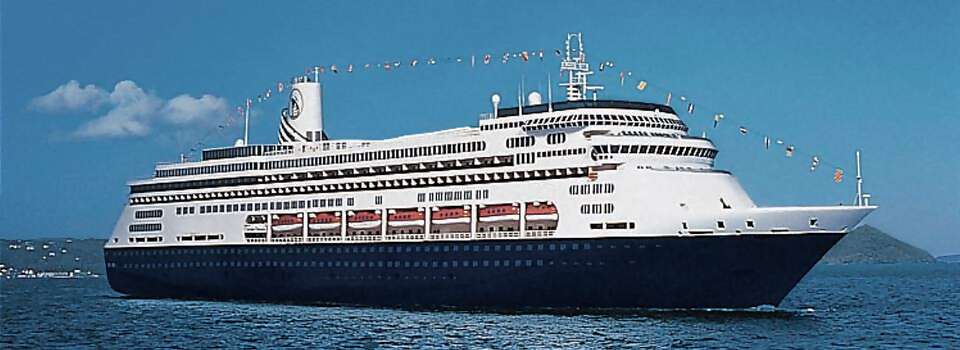You will visit the following 12 places:

Sydney
Sydney is the largest and most populous city in Australia and the state capital of New South Wales. The city is located on Australia's south-east coast of the Tasman Sea. It is also the oldest and most cosmopolitan city in Australia with an enviable reputation as one of the world's most beautiful and liveable cities. Brimming with history, nature, culture, art, fashion, cuisine, design, Sydney's set next to miles of ocean coastline and sandy surf beaches. Long-term immigration has led to the cities reputation as one of the most culturally and ethnically diverse cities in Australia and the world. The city is also home to the Sydney Opera House and the Sydney Harbour Bridge, two of the most iconic structures on this planet.

Tadine

Lifou

Luganville
Luganville is the second largest city in Vanuatu. Its population is 13,167. The city is called Santo by people from Vanuatu's northern islands, who use Luganville as their big city. It is called Kanal (from French Second Canal) by rural residents of the large island of Espiritu Santo. The main street that runs through Luganville contains most of the commercial businesses and is very wide as a result of the American base commander insisting that four army tanks could be driven side by side along the road. Small side streets and outlying roads cater for the residential zones. The main street contains the port at one end and the markets and municipal council building at the other end. In the centre there are two main types of stores: tourist boutiques and all-in-one stores (best described as a cross between a supermarket and a hardware store).

Port Vila
Port Vila is the capital and largest city of Vanuatu. Situated on the south coast of the island of Efate, in Shefa Province, the city population at last census (1999) was 29,356, an increase of 55% on the previous census result (1989). This suggests a 2007 population of about 40,000 or around 65% of the province's population. Port Vila is the economic and commercial centre of Vanuatu. The area occupied by Port Vila has been inhabited by Melanesian people for thousands of years. In 1606, the first Europeans arrived at the island, led by Pedro Fernández de Quirós and Luis Váez de Torres.

Vanuatu
Vanuatu's name is derived from the word vanua ("land" or "home"), which occurs in several Austronesian languages, and the word tu ("stand"). Together the two words indicated the independent status of the new country. Vanuatu is an archipelago Pacific island made up of 80-plus island that stretch 1,300 kilometers. In the 1880s, France and Great Britain claimed parts of the archipelago, and in 1906 they agreed on a framework for jointly managing the archipelago as the New Hebrides through a British–French Condominium. An independence movement arose in the 1970s, and the Republic of Vanuatu was founded in 1980. The islands offer scuba diving at coral reefs, underwater caverns and wrecks such as the WWII-era troopship SS President Coolidge. It takes a little time, effort and a healthy sense of adventure to truly explore Vanuatu's islands, but it's worth every bit of it.

Noumea
Nouméa is the capital city of the French special collectivity of New Caledonia. It is situated on a peninsula in the south of New Caledonia's main island, Grande Terre, and is home to the majority of the island's European, Polynesian (Wallisians, Futunians, Tahitians), Indonesian, and Vietnamese populations, as well as many Melanesians, Ni-Vanuatu and Kanaks that work in one of the South Pacific's most industrialised cities. The city lies on a protected deepwater harbour which serves as the chief port for New Caledonia. Located on the main island, Grand Terre, it's known for its beaches and its blend of French and native Kanak influences.

Ile Des Pins

Port Arthur

Hobart
Hobart is the state capital and most populous city of the Australian island state of Tasmania. Founded in 1803 as a penal colony, Hobart is Australia's second oldest capital city after Sydney. In 2009, the city had a greater area population of approximately 212,019. The city is located in the state's south-east on the estuary of the Derwent River, making it the most southern of Australia's capital cities. Its harbour forms the second-deepest natural port in the world. At its fashionable Salamanca Place, old sandstone warehouses host galleries and cafes. Its skyline is dominated by the 1,271-metre (4,170 ft) kunanyi / Mount Wellington, and much of the city's waterfront consists of reclaimed land. It is the financial and administrative heart of Tasmania, serving as the home port for both Australian and French Antarctic operations and acting as a major tourist hub, with over 1.192 million visitors in 2011/2012. The metropolitan area is often referred to as Greater Hobart, to differentiate it from the City of Hobart, one of the five local government areas that cover the city.

Adelaide
Adelaide is the capital and most populous city of the Australian state of South Australia, and is the fifth-largest city in Australia. It is known as "The City of Churches". Adelaide stretches 20 km (12 mi) from the coast to the foothills, and 90 km (56 mi) from Gawler at its northern extent to Sellicks Beach in the south. As South Australia's seat of government and commercial centre, Adelaide is the site of many governmental and financial institutions. Most of these are concentrated in the city centre along the cultural boulevard of North Terrace, King William Street and in various districts of the metropolitan area. Today, it is noted for its many festivals and sporting events, its food and wine, its long beachfronts, its large defence and manufacturing sectors. It ranks highly in terms of liveability, being listed in the Top 10 of The Economist Intelligence Unit's World's Most Liveable Cities!









